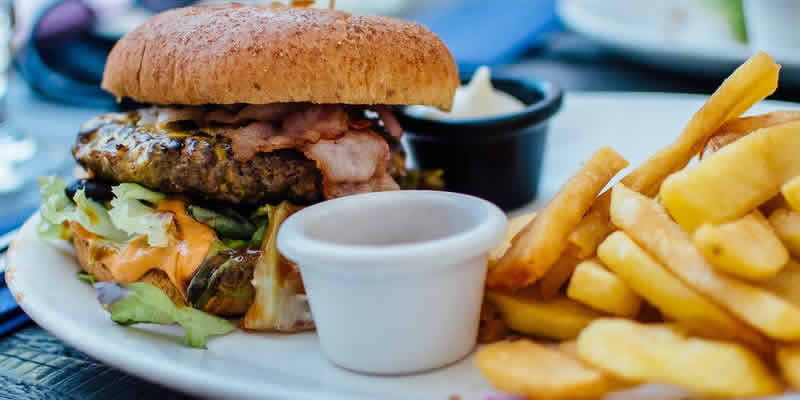Everyone consumes an extra 900 calories each day – the equivalent of three McDonald’s cheeseburgers – than they admit to, a new study says.
The study found that everyone, regardless of their waistline and weight, all misreported their food intake, which could be undermining national health advice.
Researchers from the University of Essex found that all participants misreported how many calories they consume by an average of 900 calories per day. They then took into account how much energy a person burns per day.
Despite the gap in reported calorie intake and actual calorie intake being larger for people with obesity, the study revealed that they burn more calories completing day-to-day tasks than individuals not classed as obese.
- TikTok Trend Causes a Shortage of Diabetes Medication Ozempic
- Junk food in reality TV could be fuelling obesity
The researchers, led by Professor Gavin Sandercock from the School of Sport, Rehabilitation, and Exercise Sciences, hope that the results will lead to a re-think of guidelines on calorie intake.
The research team explained: “The gap between reported intake and actual expenditure was bigger in obese adults than normal-weight adults but not because they lied about how much they had eaten, instead it was because they expended much more energy each day than their thinner peers.
“Bigger bodies need more energy every hour of the day and particularly during physical activity because moving your weight is hard work.”
They continued: “We used an innovative mathematical model to correct for the difference in body size between obese and non-obese adults.
“When we took into account the different body size and the different energy needs they have, there was no difference in how much they underreported their food intake.
“The idea that obese people lie about their food intake is wrong – it’s simply that as energy requirements increase with a larger body size there is more error between what people report and what they actually eat.”
The research involved 221 adults with an average age of 24 and a wide variety of body shapes. The participants kept a food diary, and the researchers then checked the amount of energy consumed using radioactive water and urine tests.
They found that slimmer participants misreported by 800 calories and that although obese individuals misreported how many calories they consumed by an average of 1,200 calories, they actually burnt 400 calories more energy per day.
The participants all lied about how much energy they consumed, claiming to eat an average of 1,800 calories per day.
Due to the study results, Professor Sandercock is calling on the government to rethink and adapt its advice.
“Public health recommendations have historically relied heavily on self-reported energy intake values. Recognising that the measures of energy intake are incorrect might result in the setting of more realistic targets,” said Professor Sandercock.
He added: “Additionally, changing the narrative around obese people fibbing about their energy intake might change the focus to investigating dietary risk factors for obesity, such as foods with high-energy density, processed foods, high-fat low-fibre foods and sugary beverages, all of which drive a high energy intake.”
Although 900 calories equate to three McDonald’s Cheeseburgers, it also equates to five pints of lager, seven packets of ready salted crisps, 18 apples, or 300 cherry tomatoes.
Click here to use our calorie calculator and find out how many calories you’d burn by activity.
The study was published in the American Journal of Human Biology.





